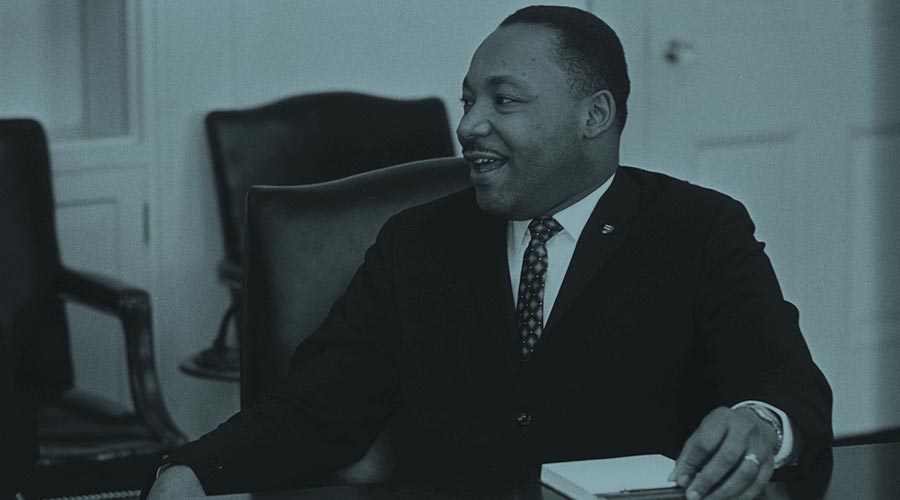The Rev. Dr. Martin Luther King Jr. is celebrated as one of the most iconic and impactful advocates for racial justice in the United States. He dedicated his life to championing civil rights and eradicating racial inequality. The national holiday in honor of King falls on the third Monday in January. It is the only federal holiday designated as a day of service.
King’s legacy is grounded in the civil rights movement, and his calls for equity and change have reverberated through the decades. Known for nonviolent resistance, he helped organize and lead protests to highlight racial segregation and inequality throughout the 50s and 60s. The Montgomery bus boycott in 1955 brought international attention to King and the civil rights movement. The 13-month boycott organized and led by King’s Montgomery Improvement Association led to the ruling in 1956 by the U.S. Supreme Court that segregation on Alabama’s public buses was unconstitutional, according to public records.
In 1963, the civil rights movement and King’s legacy was solidified following a series of events in Alabama called the Birmingham Campaign. That April, Dr. King and other organizers conducted mass gatherings and planned direct actions such as lunch counter sit-ins, marches on the city hall and a business boycott. King was imprisoned. While jailed, King penned the now famous ‘Letter from Birmingham Jail.’
In it King wrote, “injustice anywhere is a threat to justice everywhere. We know through painful experience that freedom is never voluntarily given by the oppressor; it must be demanded by the oppressed.” Following the campaign, Birmingham desegregated shops, parks and other public areas formerly off limits to Black residents.
King continued to organize for freedom and equality following his release from incarceration in Birmingham. Ten years later, the March on Washington for Jobs and Freedom in 1963 brought together an audience of more than 250,000 people, including Robert F. Smith and his parents. At that rally for equal work and voting rights, King delivered his “I Have a Dream” speech.
As a result of the advocacy by a number of civil rights leaders such as King and groups working for racial equity, the Civil Rights Act of 1964 and Voting Rights Act of 1965 were signed into law to legally end some of the systemic disenfranchisement of Black Americans.
Robert F. Smith’s Impact in Preserving Black History and Culture
As the U.S. continues to work to reverse its history of institutionalized racism, it’s important to honor leaders like King and to preserve their legacies for future generations. As a racial justice advocate and philanthropist, Robert F. Smith is committed to doing both.
Smith is founding director and President of Fund II Foundation, a charitable organization that focuses its grant-giving efforts to five main categories. One of these areas is dedicated to “preserving the African-American experience for future generations.” This means the organization partners with nonprofits that help illuminate. Black history. In February 2019, Fund II Foundation made a significant donation to the National Park Foundation to help purchase the homes where Dr. Martin Luther King Jr. lived. The gift allowed the homes to be transferred into the care of the National Park Service and preserved as part of Martin Luther King Jr. National Historical Park in Atlanta, Georgia.
Other contributions by Smith to preserve and highlight Black history and culture include a historic $20 million donation to the Smithsonian National Museum of African American History and Culture in 2016. Smith is also an executive producer behind the creation of Black History in Two Minutes (Or So), a digital video podcast developed to “preserve the African American experience and democratize online learning sources.” The videos offer short factual stories about Black history that are accessible to people of all ages. There are now over 60 episodes “which cover heroes of the Civil Rights movement as well as some of the more obscure figures in the fight for equality.”
Learn more about Smith’s efforts to honor and preserve Black history and culture.






